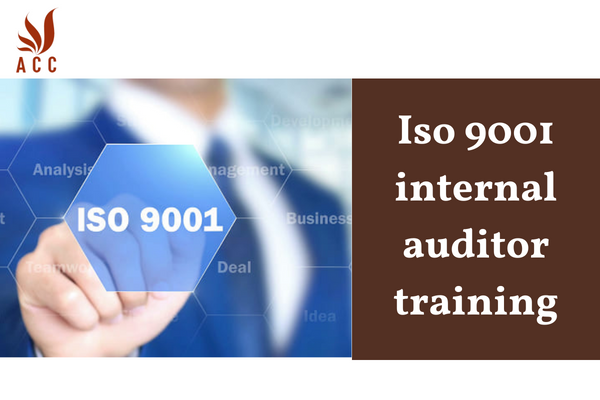In today's competitive business environment, it is more important than ever for organizations to have a strong quality management system (QMS). ISO 9001 is the most widely recognized QMS standard in the world, and it can help organizations improve their efficiency, effectiveness, and customer satisfaction.

Iso 9001 internal auditor training
1. Introduction
ISO 9001:2015 is the international standard for quality management systems. It provides a framework for organizations to improve their quality performance and meet the needs of their customers. Internal auditing is an important part of the ISO 9001 quality management system. It helps organizations to:
- Ensure that their quality management system is effective
- Identify areas for improvement
- Provide assurance to management and stakeholders
2. Objectives
The objectives of ISO 9001 internal auditor training are to:
- Provide participants with a comprehensive understanding of ISO 9001
- Develop the skills and knowledge necessary to conduct internal audits
- Prepare participants for the IRCA Certified Internal Auditor exam
3. Content
ISO 9001 internal auditor training typically covers the following topics:
- Introduction to quality management
- The ISO 9001 quality management system
- The principles of quality management
- The requirements of ISO 9001
- Internal auditing
- Audit planning
- Audit execution
- Audit reporting
4. Methodologies
ISO 9001 internal auditor training can be delivered in a variety of ways, including:
- Instructor-led classroom training
- Online training
- Blended learning
5. Benefits of ISO 9001 Internal Auditor Training
- Improved understanding of the ISO 9001 standard
ISO 9001 is a complex standard with many requirements. Internal auditor training provides a comprehensive overview of the standard, including its history, objectives, structure, and key concepts. This understanding is essential for internal auditors to be able to effectively assess the organization's compliance with the standard.
- Developed skills and knowledge
Internal auditor training provides internal auditors with the skills and knowledge they need to conduct effective audits. This includes training on:
Planning and conducting audits
Gathering and analyzing evidence
Reporting findings
Following up on actions
By developing these skills and knowledge, internal auditors can help organizations improve their quality management systems.
- Increased confidence and credibility
Internal auditor training can help internal auditors feel more confident in their ability to conduct audits. This increased confidence can lead to improved credibility with management and other stakeholders.
- Opportunities for career advancement
Internal auditor training can help internal auditors advance their careers. Many organizations require internal auditors to have completed formal training in order to be promoted.
- Personal satisfaction
Internal auditor training can be a rewarding experience. It can help internal auditors learn more about their organization's quality management system and make a positive contribution to its success.
6. Frequently asked questions
Q1: What is ISO 9001 internal auditor training?
A: ISO 9001 internal auditor training is a program designed to equip individuals with the knowledge and skills needed to assess and audit a company's quality management system according to ISO 9001 standards.
Q2: Why is ISO 9001 internal auditor training important for organizations?
A: Internal auditor training is crucial as it ensures that employees within an organization can effectively audit and evaluate their quality management system, promoting continuous improvement and compliance with ISO 9001 requirements.
Q3: What are the key topics covered in ISO 9001 internal auditor training?
A: The training typically covers ISO 9001 principles, auditing techniques, documentation review, and practical exercises to help participants understand how to assess and improve a company's quality management system.
Q4: Who should attend ISO 9001 internal auditor training?
A: Individuals involved in the development, implementation, and maintenance of a company's quality management system, as well as those responsible for conducting internal audits, should attend this training.
Q5: What is the duration of ISO 9001 internal auditor training courses?
A: The duration can vary, but most courses range from two to five days. The length depends on the depth of material covered and the level of detail included in practical exercises.
Q6: How can organizations benefit from having ISO 9001 trained internal auditors?
A: Organizations benefit by having trained internal auditors who can identify and address potential non-conformities, improve processes, enhance customer satisfaction, and ultimately contribute to the overall success of the company's quality management system.
Nội dung bài viết:






Bình luận